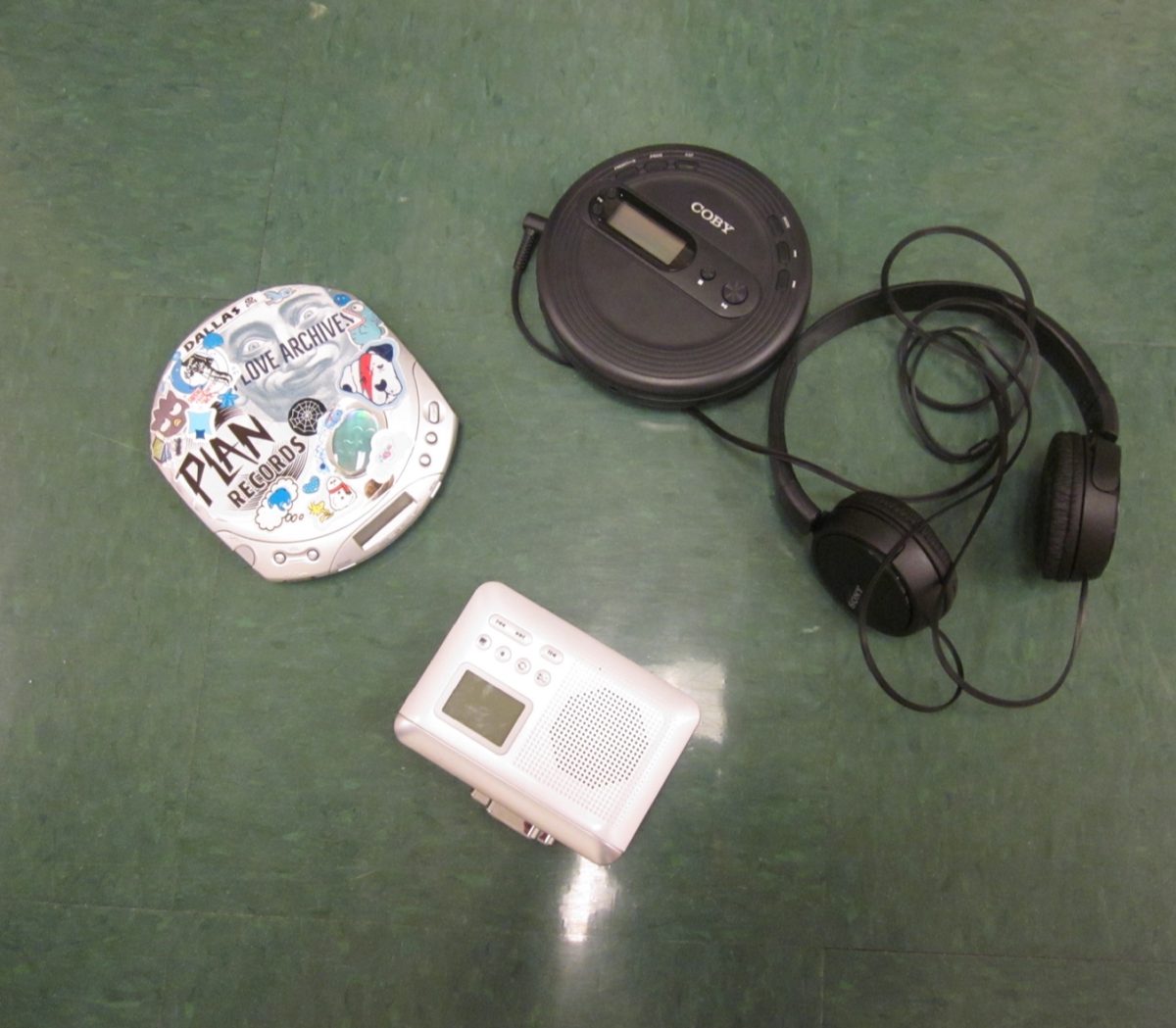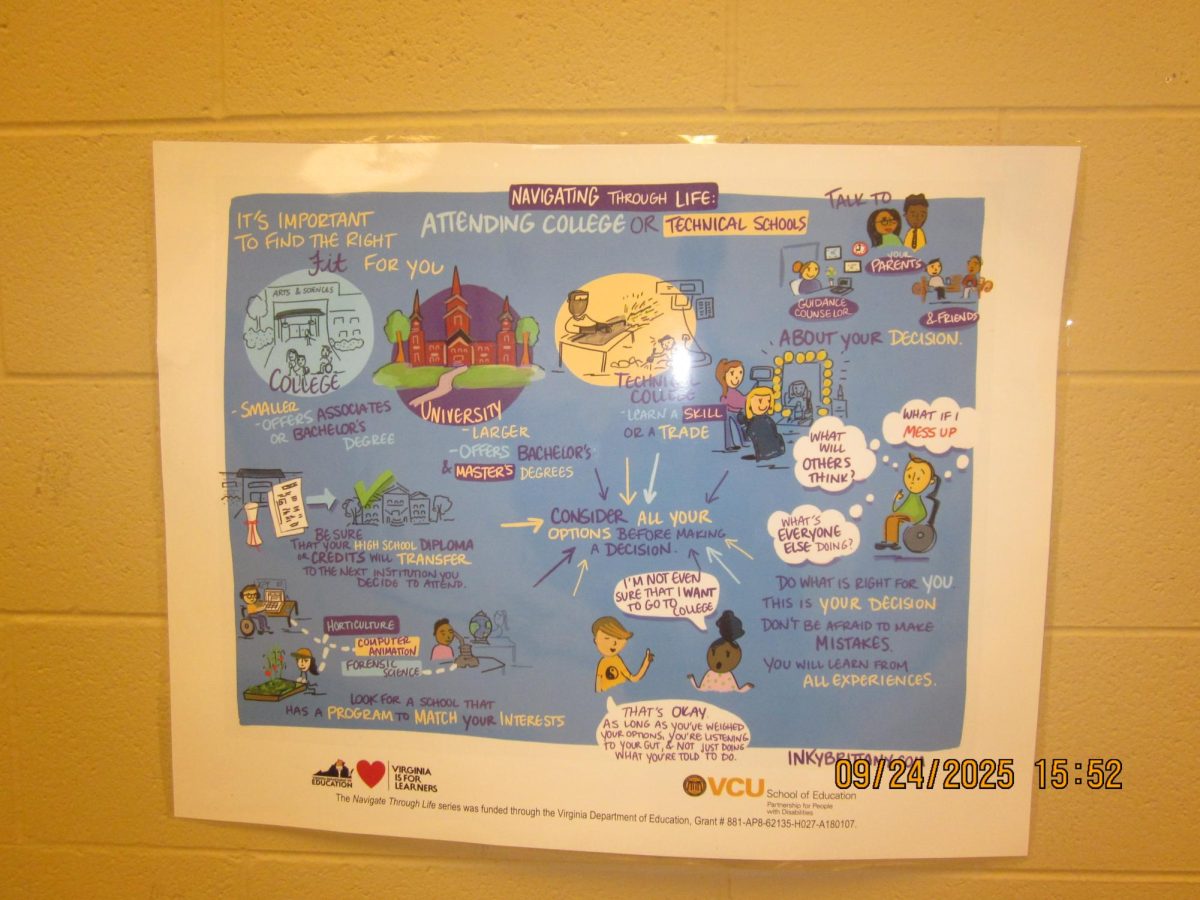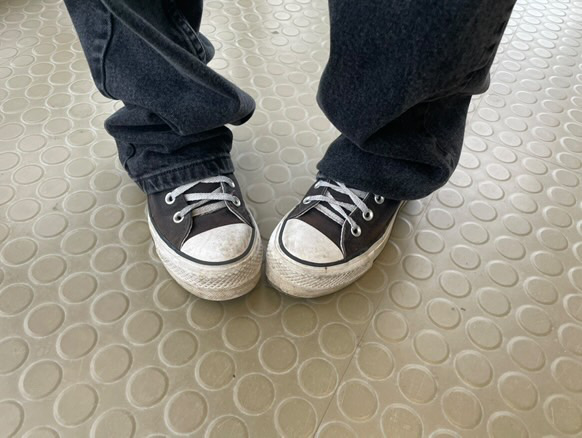In response to the recent phone ban in place, Clover Hill students are proving that music always finds a way. It seems that the 90s are back at the Hill with students using portable music devices due to the phone ban limiting their ability to listen to music from bell-to-bell.
Since the creation of the iconic Sony Walkman, carrying music in high school became a part of a students identity and social life. Junior Abby Ellis embraces the retro revival and expresses her passion for music no matter the form.
“I love music regardless of how I listen to it and it makes me feel really cool walking around with my cassette player,” Ellis said.
Prior to the ban, many students had concerns about not being able to focus during school without listening to music. According to research from National University, listening to music activates both sides
of the brain. This action aids in memory and learning abilities.
“Listening to music makes it easier to focus on things like math and science where you’re not reading something else or if you have downtime in class,” Ellis said.
CCPS states that all devices connecting to Wi-Fi, Bluetooth or both, are included within the bell-to-bell policy. Despite this, teenagers are commonly known for finding ways around structured rules.
“I am only using it in classes that previously let me listen to music on my phone,” Ellis said.
Teachers and staff have become wary while navigating the new phone policy. As the policy is so new, the things considered allowed and not allowed are vague and it is difficult to know where to draw the line. Junior Jayden Fox sports a radio around with him through the halls and during class time, but he has encountered mixed reactions.

“Most teachers are cool but some tell me to put it away,” Fox said.
Teachers and staff are shocked to see their childhoods around the halls again. Gym teacher, behind the wheel instructor, and varsity girls soccer coach Chuck Anderson, reminisced about his own experience with portable music.
“We used to make party tapes and we’d take songs from the radio and from different CDs and put them into cassette tapes, then listen to it on a Walkman,” Anderson said.
Parents of students rocking portable music devices are amused in seeing their high school and college years come back around to their childrens’ lives.
“My father thinks it’s hilarious, he’s told me several times. They say we’re going back in time,” Ellis said.
These students are also facing the differences in comfortability and quality of their music listening experience with their new, but familiar, devices.
“There are more options and better audio quality on my phone,” Ellis said.
Alongside this new adaptation, the devices have also opened a whole new world of music discovery for students using them.
“I’m discovering more R&B and opera music,” Fox said.
Ellis has also experienced similar discovery through her finding vintage cassette tapes.
“I found a bunch of cassette tapes in her attic and wanted to listen to them,” Ellis said .
There is no better way to explore the history of our past than going straight to the source. Generation Z (Gen Z) has been found to crave the genuine energy that was expressed through 90s trends. A blog from immediate future claims that Gen Z’s obsession with the 90s springs from a cultural movement that focuses on celebrating authenticity.
Faced with the loss of their modern music source, students have gone straight back to the foundation of portable music. No matter the generation, music will always have a place in Clover Hill’s halls.









